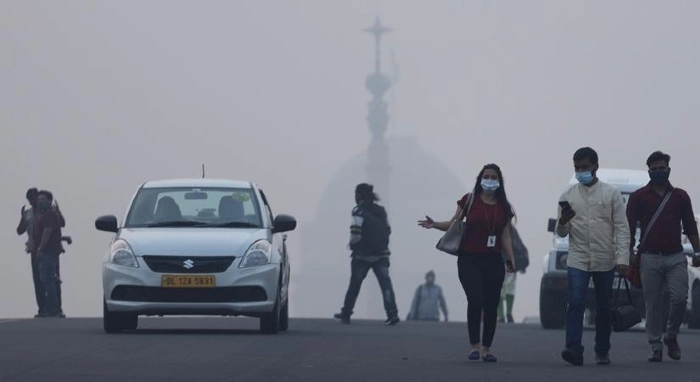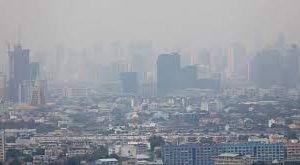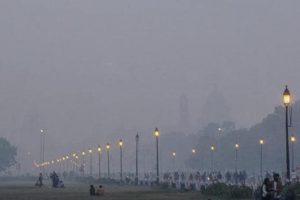The increase in PM2.5 over India was less pronounced than in previous years as Covid-19 lockdowns brought rapid and "unprecedented" improvements in air quality in some parts of the world, weather experts from the United Nations have revealed.
According to the latest Air Quality and Climate Bulletin of the World Meteorological Organization (WMO), Asia saw a significant reduction in the level of harmful airborne particles caused by traffic and energy production in 2020 though it may not be enough to halt climate change caused by global warming.
"In 2020, there was an unprecedented reduction in certain human activities, such as vehicle transport and aviation, due to the economic downturn associated with the Covid-19 pandemic. In areas such as China, Europe and North America, short-term Covid-related reductions in emissions coincided with long-term emission-mitigation measures that led to lower PM2.5 concentrations in 2020 compared to previous years," the bulletin mentions.
Last year, a report on 'Impact of lockdown on ambient air quality' prepared by India's Central Pollution Control Board (CPCB), had also found out that significant improvement in air quality was observed during lockdown due to restricted anthropogenic activities. It concluded that the lessons learnt from the Covid-19 pandemic can be utilized to target source specific actions leading to maximum improvement in ambient air quality.
"Irreversible emission reductions through sustainable process changes and long-term objectives is crucial for achieving good air quality levels. However, as impact of various anthropogenic activities is
now being quantified, actions that can be integrated in business as usual scenarios needs to be identified, with emphasis on reduction of emissions at source including dust control, vehicular emissions, industrial operations, etc," the report said.
Last week, India Narrative had, citing findings by the Energy Policy Institute at the University of Chicago (EPIC), revealed that high levels of air pollution is likely to reduce the life expectancy of about 40% of Indians by more than 9 years.
In spite of the Covid lockdowns, New Delhi was ranked the world's most polluted capital for the third consecutive year in 2020 by IQAir, a Swiss group that measures air quality levels.
Also Read: High air pollution likely to cut life span of 40% Indians by 9 years, says US report




















